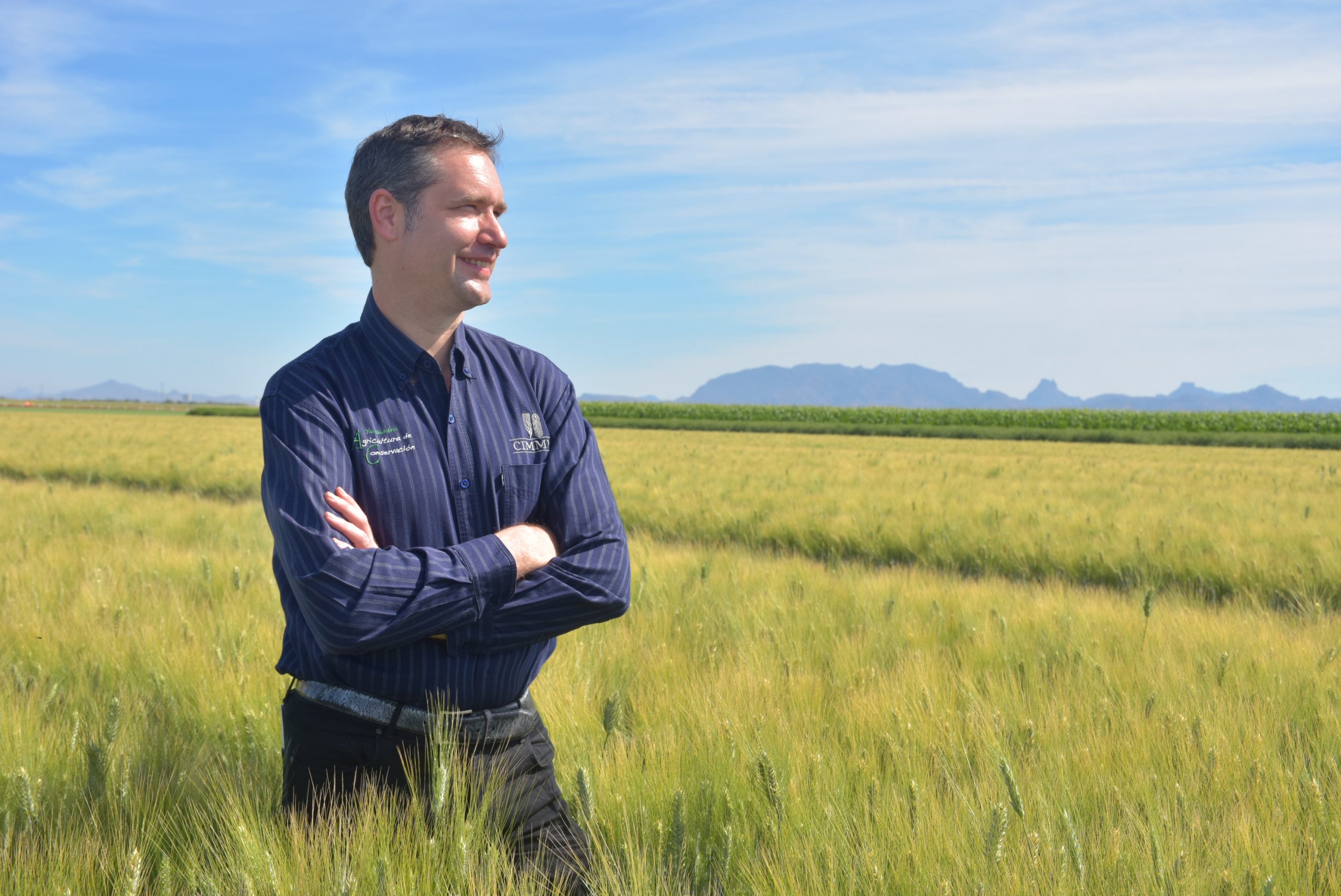26 October 2025, Mexico. The Director General of the Food and Agriculture Organization of the United Nations (FAO), Qu Dongyu, visited CIMMYT to strengthen the partnership between the two organizations. The visit focused on advancing joint efforts to address global food security challenges and promote more resilient and sustainable agrifood systems worldwide. The Secretary of Agriculture and Rural Development of the Mexican Government, Dr. Julio Berdegué S., participated in the visit, emphasizing the country’s leadership and trust in CIMMYT’s science-based solutions.
The Director General commended the great efforts made by CIMMYT in agricultural development, innovation and food security. He was accompanied by Ms. Beth Crawford, FAO’s Assistant Director-General and Director of the Office of Strategy, Programme and Budget (OSP), who emphasized FAO’s commitment to reinforcing strategic partnerships that accelerate innovation and maximize the impact of research-for-development.
“FAO and CIMMYT share the same goal: to ensure nutrition for all through science, innovation and cooperation. In these challenging times, we must work together to transform our agrifood systems, preserve traditional knowledge and promote new technologies that improve farmers’ lives. The history of Mexico and FAO has been connected for 80 years, and today we continue building that common future,” said Qu Dongyu, Director-General of the Food and Agriculture Organization of the United Nations (FAO).
A longstanding partnership
This visit underscores the longstanding collaboration between FAO and CIMMYT in transforming agrifood systems. Both organizations share a vision of transforming agrifood systems through innovation, capacity building, and sustainable practices aligned with the Sustainable Development Goals (SDGs) and FAO’s Four Betters framework: better production, better nutrition, a better environment, and a better life for all.
CIMMYT and FAO’s shared commitment led to the creation of the Opportunity Crops and Soils movement (VACS), a global initiative launched in July 2024 to build resilient food systems through diverse, climate-adapted crops grown in healthy soils. The initiative coordinates global efforts to strengthen soil health and scale up the use of nutritious, climate-resilient crops. This partnership brings together governments, researchers, and the private sector to drive policies and investments that support sustainable food and nutrition systems.
FAO and CIMMYT partnership drive innovation for resilient agrifood systems
During the visit, the FAO delegation toured CIMMYT’s headquarters to observe firsthand how the organization connects science with farmers’ needs.
The delegation was joined by the Secretary of Agriculture and Rural Development of the Government of Mexico, Dr. Julio Berdegué Sacristán, accompanied by Santiago Ruy-Sánchez de Orellana, General Coordinator for International Affairs at SADER; Norma Munguía Aldaraca, Director General for Global Affairs at the Ministry of Foreign Affairs; and Laura Elena Carrillo Cubillas, Mexico’s Permanent Representative to the UN Agencies in Rome. Also in attendance were Lina Pohl Alfaro, FAO Representative in Mexico, and members of her team.
Their participation underscored the Government’s leadership and trust in CIMMYT’s science-based solutions, rooted in decades of collaboration that have positioned the country as a global reference for agricultural innovation and sustainable development. Thanks to this enduring partnership and national vision, CIMMYT and its partners have consolidated an innovation network through the hub model, which connects scientific advances with the traditional knowledge of rural communities.
During this visit, CIMMYT presented the hub model as a strategic resource to strengthen the implementation and scaling of joint initiatives such as the Opportunity Crops and Soils movement (VACS), Recarbonization of Global Agricultural Soils (RECSOIL), One Country One Priority Product (OCOP), and other collaborative efforts with FAO—offering an effective mechanism to translate science into action and foster locally driven agrifood systems transformation. Through this model, innovations developed by CIMMYT’s research—ranging from crop improvement and agronomic science to dryland agriculture—are integrated into local contexts, enhancing farmers’ resilience and adaptability to the effects of climate variability.
“FAO and CIMMYT share a long-standing commitment to transforming agriculture through science and innovation. In a rapidly changing world, our partnership is more essential than ever — to think and act with agility, to turn knowledge into impact, and to help countries like Mexico build more resilient, inclusive, and sustainable food systems,” said Julio Berdegué, Secretary of Agriculture and Rural Development of Mexico.
During their visit to CIMMYT’s biodiversity collections, field research platforms, and laboratories, the FAO delegation discussed joint priorities to advance low-emission forage systems, sustainable soil and water management, and stronger science-policy collaboration in Mexico and beyond. CIMMYT scientists also showcased ongoing research on crop improvement, precision genetics, smart mechanization, crop diversification, and conservation agriculture practices, highlighting innovation networks that connect farmers, researchers, governments, and policymakers to co-develop regionally adapted technologies.
“For many decades, CIMMYT has been proud to be an implementing and innovation partner for FAO. Looking forward, we will deepen our relationship on stress-resilient agrifood systems for smallholder farmers, harnessing the power of agriculture as a foundation for peace and security,” said Bram Govaerts, Director General of CIMMYT.
The visit reinforced FAO and CIMMYT’s shared commitment to scaling up joint initiatives and exploring collaborative opportunities in research, technical cooperation and policy engagement globally.
Explore the full photo gallery: https://flic.kr/s/aHBqjCyDfD
About CIMMYT
CIMMYT is a cutting edge, non-profit, international organization dedicated to solving tomorrow’s problems today. It is entrusted with fostering improved quantity, quality, and dependability of production systems and basic cereals such as maize, wheat, triticale, sorghum, millets, and associated crops through applied agricultural science, particularly in the Global South, through building strong partnerships. This combination enhances the livelihood trajectories and resilience of millions of resource-poor farmers, while working towards a more productive, inclusive, and resilient agrifood system within planetary boundaries.
About FAO
The Food and Agriculture Organization (FAO) is a specialized agency of the United Nations that leads international efforts to defeat hunger.
Our goal is to achieve food security and nutrition for all by enabling all people to have regular access to enough locally appropriate high-quality nutritious food to prevent all forms of malnutrition and to lead active, healthy lives. With 195 members – 194 countries and the European Union, FAO works in over 130 countries worldwide.
For more information:
Nahyane Bakkali, External Communications Manager
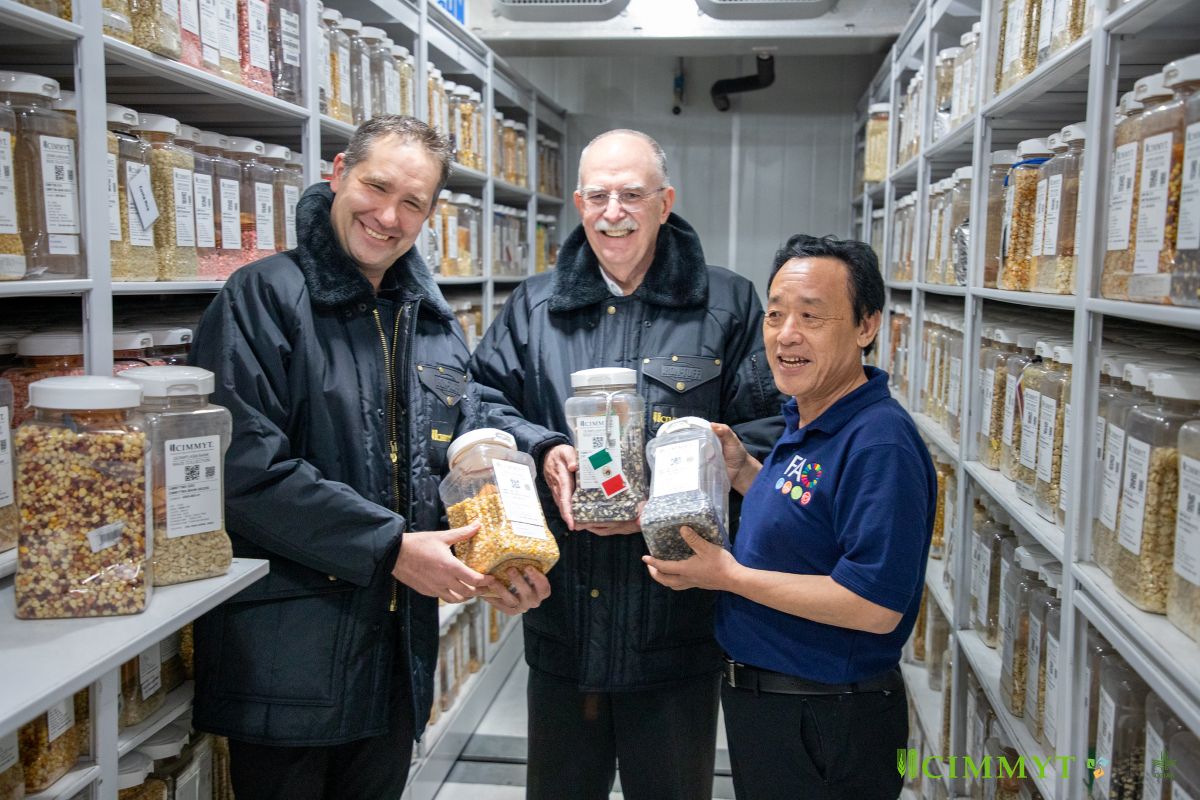
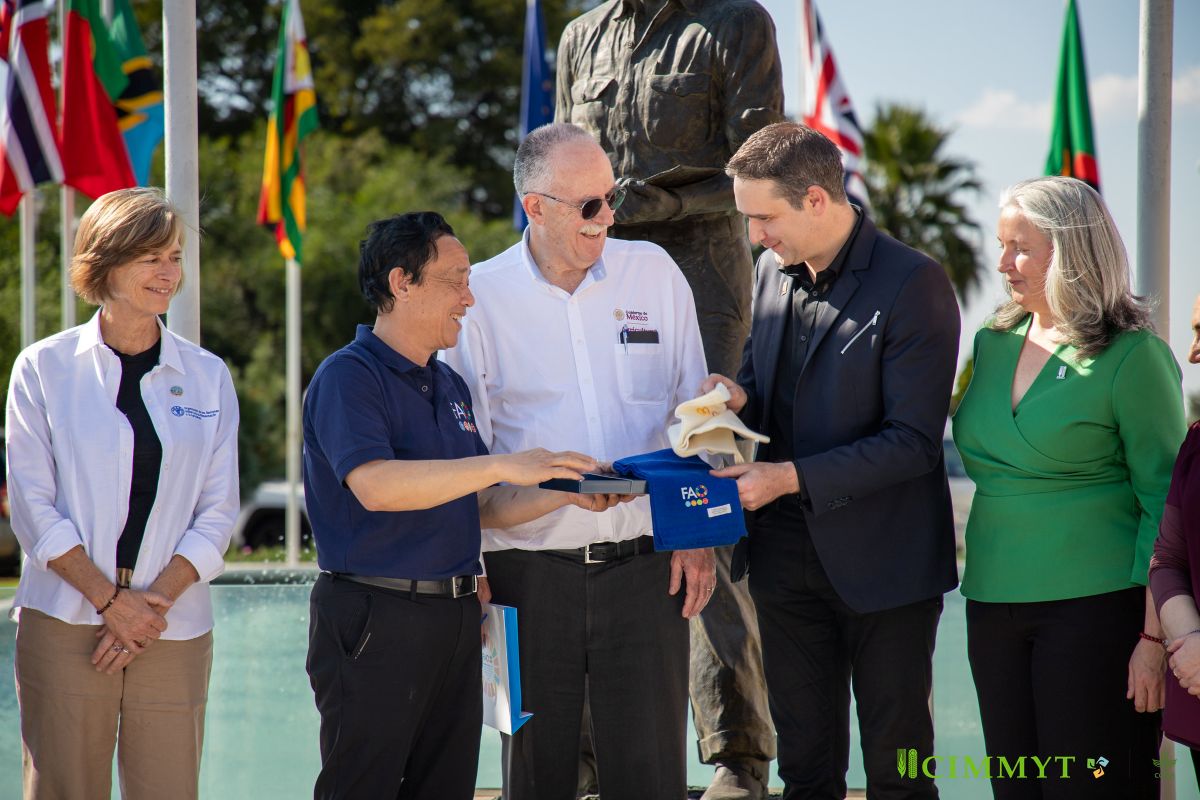
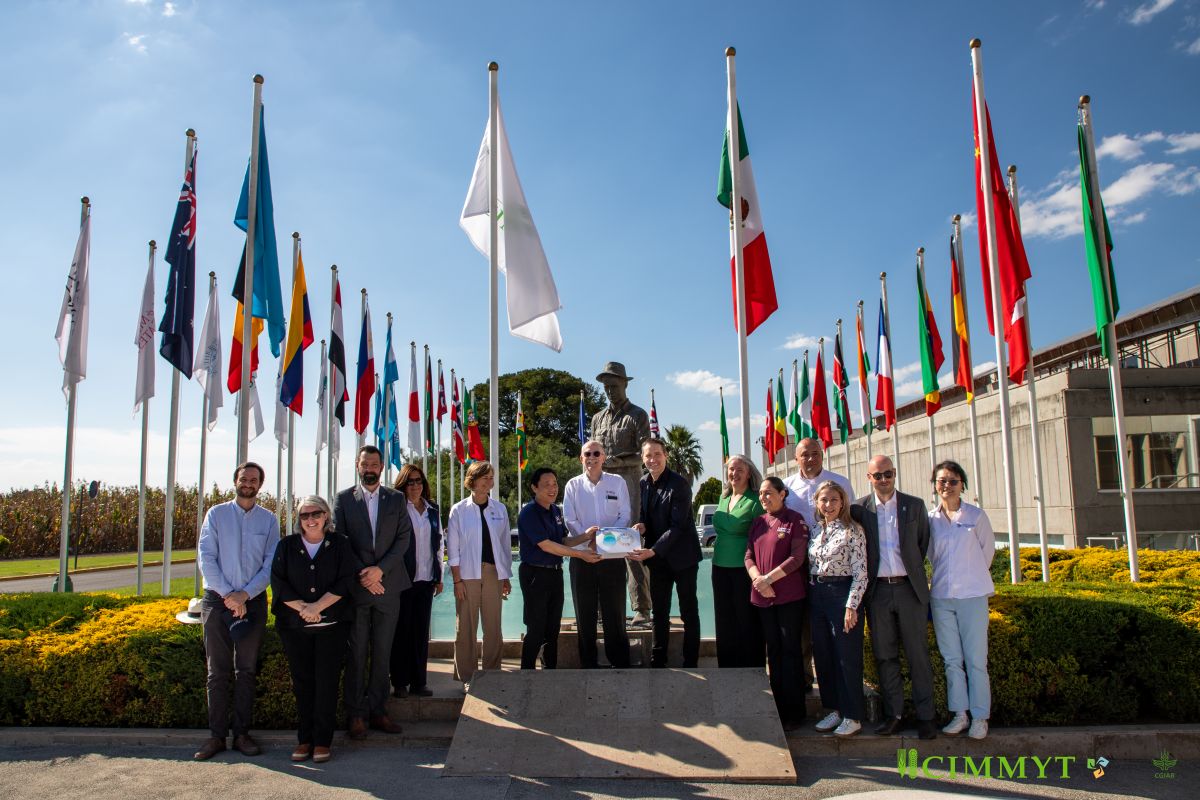
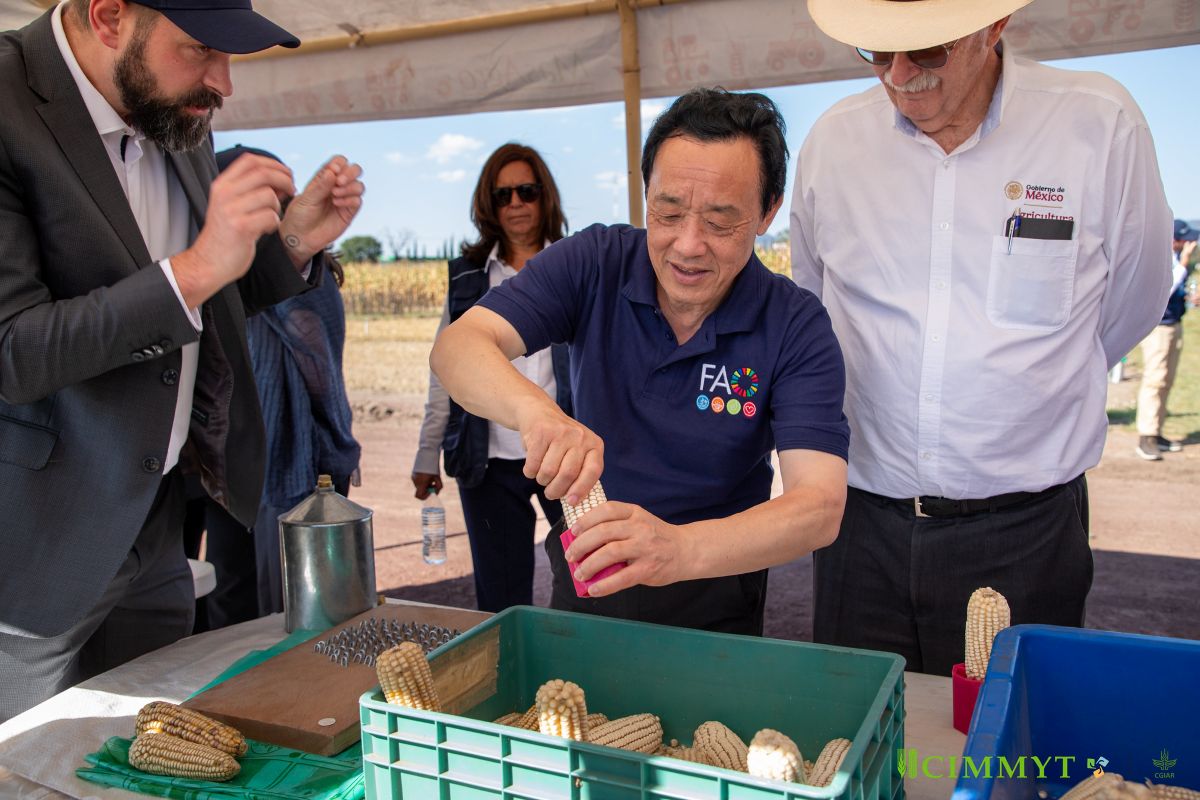
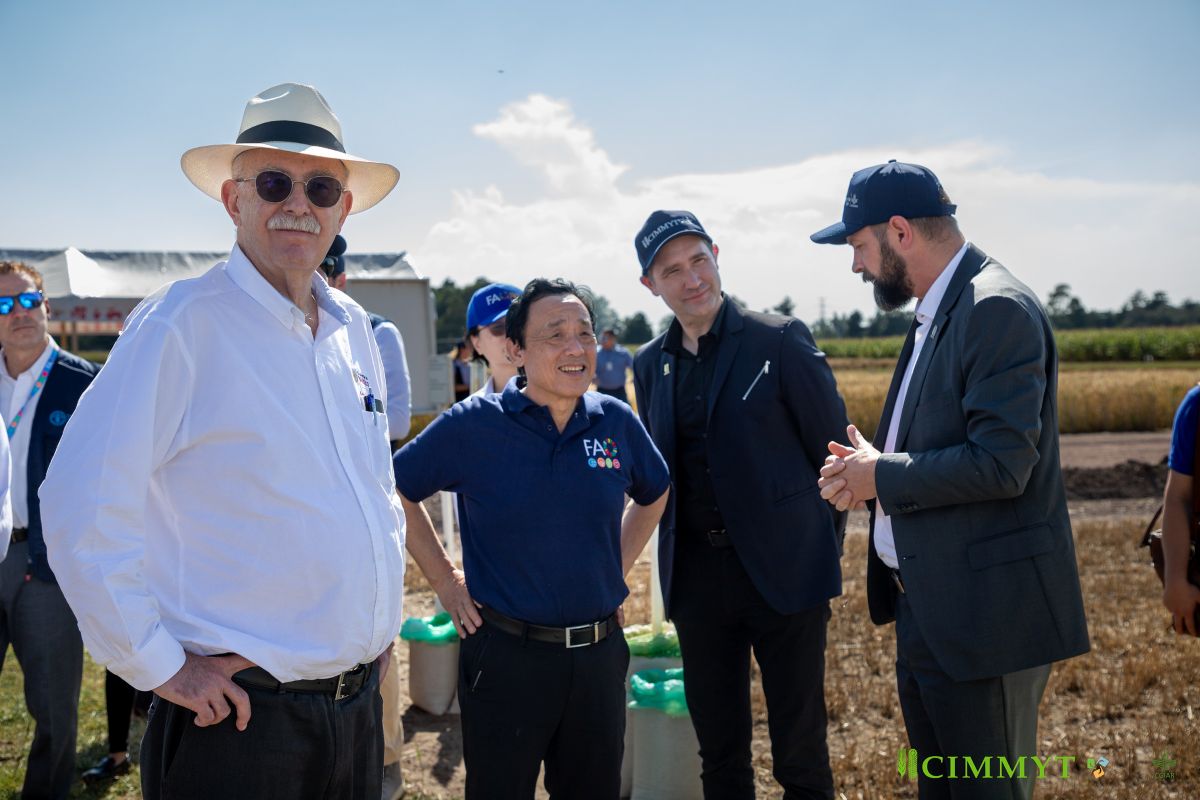
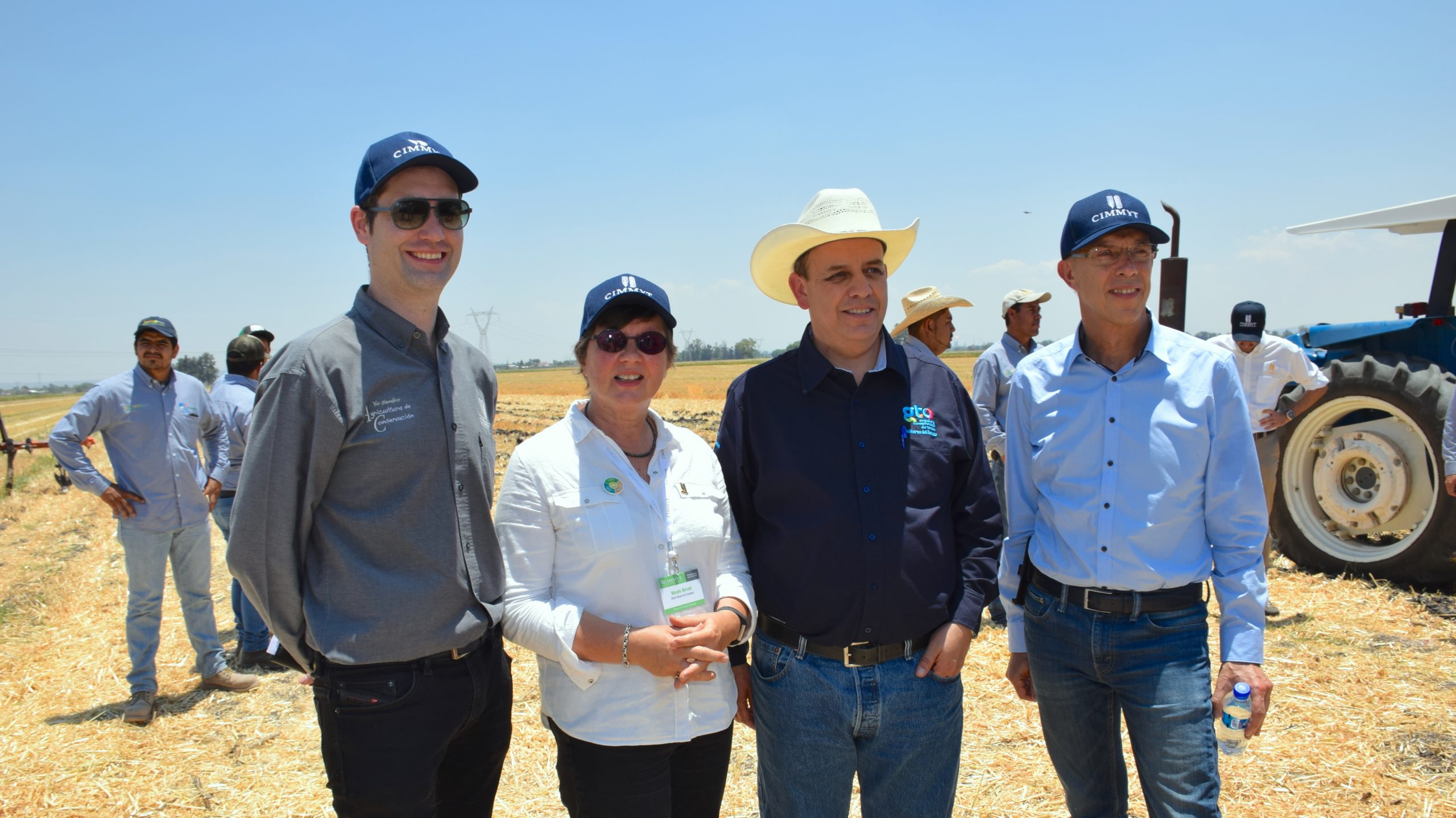
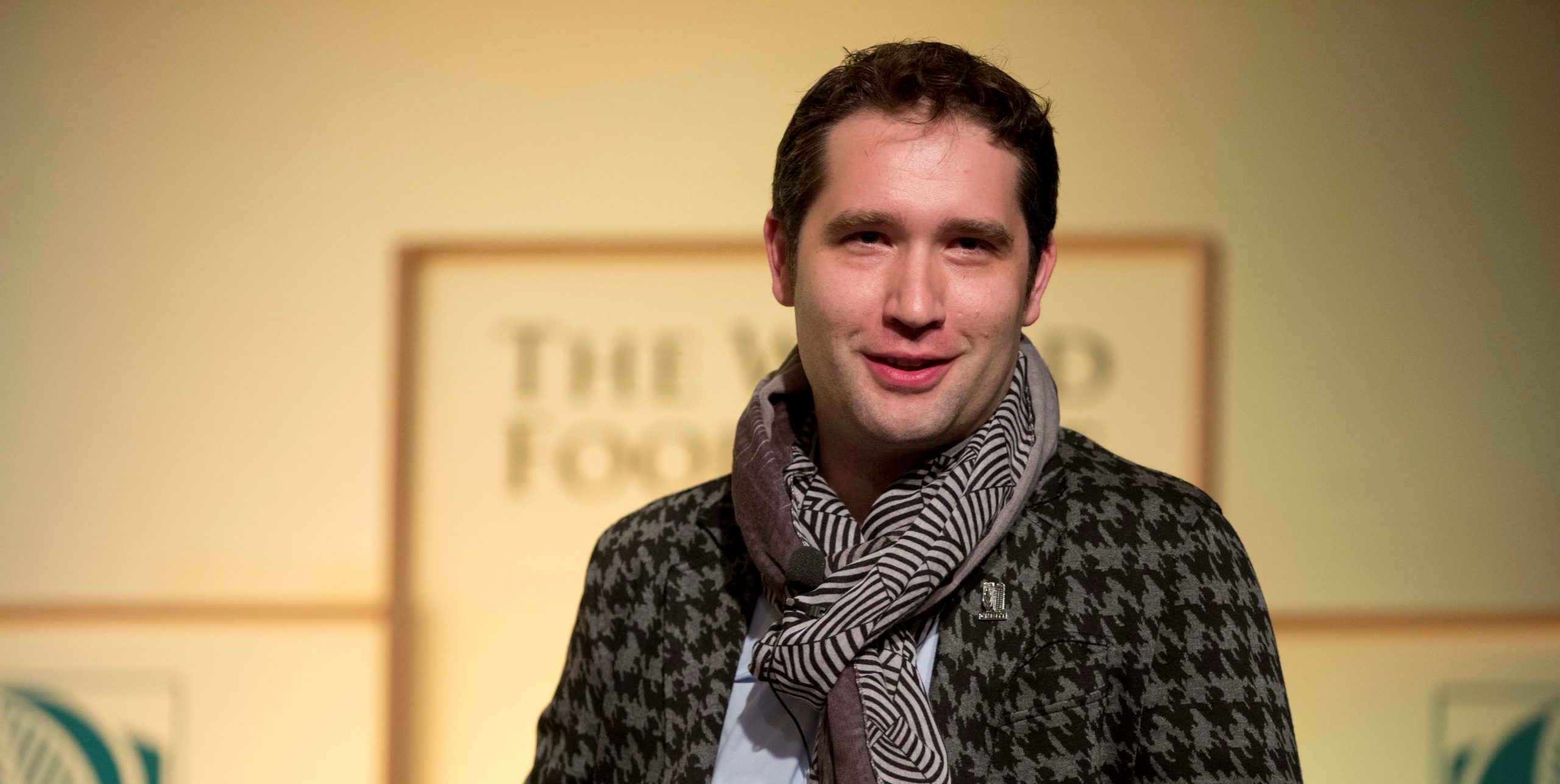
 Innovations
Innovations 